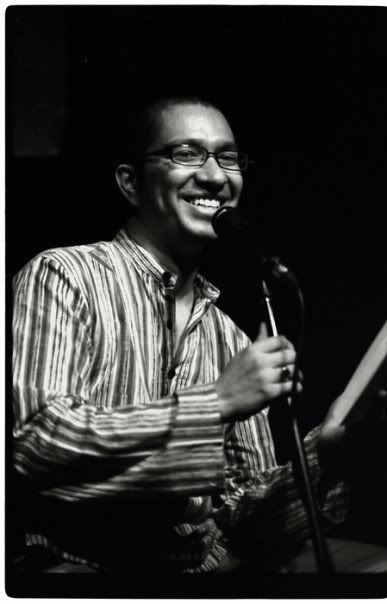Signandsight.com review

This here review appears in the eminently readable English-language German site Sign and Sight, which has been keeping a watching brief on the Berlinale. At first I thought the website's name was a take on Sight & Sound, that venerable British film magazine, until I saw that it didn't just write about films. Then I just like it because it sounds like my favourite Vladimir Nabokov short story, "Signs and Symbols," that most sly and humane of fictions, which always opens up a whole raft of associations.
A factual error in the first paragraph: Sitiawan used to be known as Gajah Mati (Dead Elephant), but its current name does not refer to any animal being harmed.
The end of history: Amir Muhammad's "The Last Communist"
It's clear from the start that "The Last Communist" is not your average history lesson. In Sitiawan in Malaysia, the birthplace of communist leader Chin Peng (more here), a street seller talks about how business is doing, who his customers are, and why this is a good place for selling drinks. You also learn that the city was called Sitiawan or "dead elephant" because it was here that long ago, two of the giant beasts collided so heavily that the both died on the spot.
Gradually Amir Muhammad acks down the legendary leader of the Malaysian Communist Party, city by city, person by person, from the past to present and his exile in Thailand. He talked to over 80 people on the way. But Chin Peng was not one of them. "Politicians are boring", the director explains cheekily, he prefers to concentrate on what really matters, the ordinary people. Like the communist fighter who lost an arm and a leg and is determined not to be a burden on anybody. Or the one-time sympathiser who still raves about the beautiful communist and about the reward he received from the British chief of police for turning her in. The communists in Malaysia have never stopped fighting: first the British, then the Japanese, then the British again and finally their own independent government. The few of them who survived to see the peace agreement, now live in exile in villages in Thailand, clearly segregated according to creed and ethnicity.
As the retired communists sing the old propaganda songs in broken voices, you sense how thoroughly the ideology failed because of the people; how total, total failure is. The end of history, here is it, right up close. The flame of the revolution is just strong enough to cook the rice for the day. One of the bloodiest battles in the British Commonwealth frays off into individual biographies, trickles down into everyday problems and gout. And Amir Muhammad takes all his protagonists seriously. He lets them talk and simply hears out their explanations of why they sacrificed their entire lives for a socialist Malaysia which no one seemed to want after a while.
Apart from that Amir Muhammad respects nothing and no one. And particularly not the propaganda songs that were deployed by the English and the communists alike to educate and indoctrinate the illiterate rural population. Muhammad turns them into little slapstick musical interludes where the Grim Reaper sings about the dangers of malaria or four merry women dance around Communism all dressed in red. Despite the hilarious hodge-podge of material, the film is never in danger of being ridiculous. And this is not only a result of its courage but also its tremendous sensitivity. I mean imagine the German equivalent: a young documentary film maker describes the terror of the German Autumn, by getting fidgety policemen to sing texts by Ulrike Meinhof. It's a recipe for disaster.
But Amir Muhammad pulls it off. It must be the mixture of grand Utopian designs and the everyday banality, deadly serious belief and oblivious silliness. Which is about as contradictory and distorted as the decades of fighting against colonialism, nationalism and communism must seem in eyes of rural Malays.
Christoph Mayer


0 Comments:
Post a Comment
<< Home